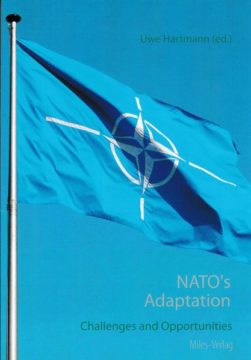Since the 11 September 2001 terror assaults and beyond, NATO has faced significant challenges of political purpose, strategy and the changing face of contemporary conflict. Its involvement in such operations as in Afghanistan has been something other than a true success story. Moreover, the post 2008 campaign of Russia’s assertive foreign and security polices laid bare the deficiencies of NATO and its member states in military capabilities, readiness and sustainability on the continent of Europe in the contemporary adaptation of Article V in its more or less original sense. NATO’s political and strategic cohesion is challenged by the divergent interests between the Eastern and Southern European countries as they react to the variety of threats arising from irredentism and jihadism. As if these dilemmas were not enough, the citizens in many European states habituated to the joys of what they deem to be perpetual peace seem to be disconnected from what NATO is doing in policy and strategy to adapt to the new security environment.
This volume intends to analyze some of the most pressing challenges of NATO’s adaption in its analytical complexity.
Lutz Mühlhöfer and Jörg Modey look at NATO’s South and the Atlantic that need intense strategic reflection. Willi Bentzinger analyses the technological power of Russia so much in the news because of cyber conflict. Jan Ballast delves into the details of NATO’s intelligence. Caroline Linzenmeier and Uwe Hartmann discuss the new/old concept of resilience from two different angles. Caroline Linzenmeier focuses on Strategic Communication, while Uwe Hartmann analyses strategy-making within the Alliance. Finally, Frank Wasgindt offers his reflections on hard, soft and smart power and potential consequences for NATO.
All authors have endeavored to offer not only conclusions of their analyses but also recommendations for action. They share the conviction that civil and military personnel should engage in public discourse to broaden the strategic knowledge on security issues.
- Veröffentlicht am Freitag 1. Dezember 2017 von Miles-Verlag
- ISBN: 9783945861592
- 132 Seiten
- Genre: Gesellschaft, Politik, Sachbücher, Wirtschaft
